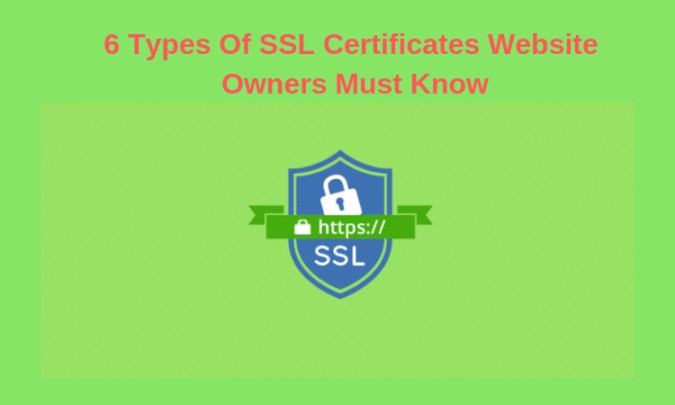Website owners must know about all types of SSL certificates in order to choose the most suitable one for their interface. Enabling the HTTPS protocol has become important for website owners as not only it helps in protecting vital information, it also ensures that the interface will not be ranked unfavorably by Google. The search engine market leader insists that websites have this security feature and it uses it as a ranking signal. However, there are different kinds of certificates available and people must know which is ideal for their website. They have been classified according to the level of security and their price. For instance, an amateur starting a graphic design company in Vancouver must choose a domain validated certificate as it will be cheap and solve her purpose. Let’s take a look at the different SSL certificate types.
Domain Validated SSL Certificates
A Domain Validate SSL Certificates are issue by a certificate authority, which confirms that the domain is owns by the applicant. The authority usually conducts the verification through an email or phone call. It can also conduct DNS verification which requires the owner to furnish the DNS record of their domain. Some authorities ask for HTTP validation which requires the applicant to create and save a text file in the public web root of his/her domain.
Organization Validated SSL Certificates
Some extra verification is conducted by certificate authorities for issuing Organization Validated SSL Certificates. In addition to establishing domain ownership, they also want to verify the identity of an applicant’s organization. Commercial websites involved in accessing sensitive personal information of individuals are required to acquire these certificates. The URL of a website with this license will display the business name and the country code in most browsers.
Extended Validation SSL Certificates
One of the most expensive types of SSL certificates is an Extended Validation SSL Certificate. In order to obtain this license, an applicant will have to provide even more details than that required for the other certificates. Authorities issue this license only after ensuring that the company applying for it is legally registered as a business. Apart from domain verification, the issuing agency will verify the operational existence of a business and its physical location by checking related records. This is the most secure SSL certificate based on validation levels.
Wildcard SSL Certificates
When a business wants to secure a domain along with numerous domains, it can use Wildcard SSL Certificates. For instance, a web design services firm in Vancouver has a domain called “xywebdesign.com”. It also possesses other sub-domains like “graphic.xywebdesign.com” and “seo.xywebdesign.com”. The agency can purchase a Wildcard SSL and enable HTTPS on all URLs.
Single-name SSL Certificates
A cost-effective option for owners looking to protect one domain is Single-name SSL Certificate. These licenses help secure only one domain and they will not enable the security feature on any other related or unrelated sub-domains. These certificates will be useful for small business owners or amateur website owners who are looking to install the security feature on their interface without spending too much money.
Multi-domain SSL Certificates
The last name on the list is Multi-domain SSL Certificates which allow people to secure numerous interfaces with one certificate. Users can enable HTTPS on up to 100 domains and sub-domains by acquiring a single SSL certificate. They are given access to the Subject Alternative Name (SAN) extension which they can use to add extra domains. This is the reason these licenses are also refer to as SAN certificates.
Conclusion
The information about different types of SSL certificates will help website owners in making an informed decision. They will be able to choose an appropriate certificate for their interface according to its requirements.



Comment here